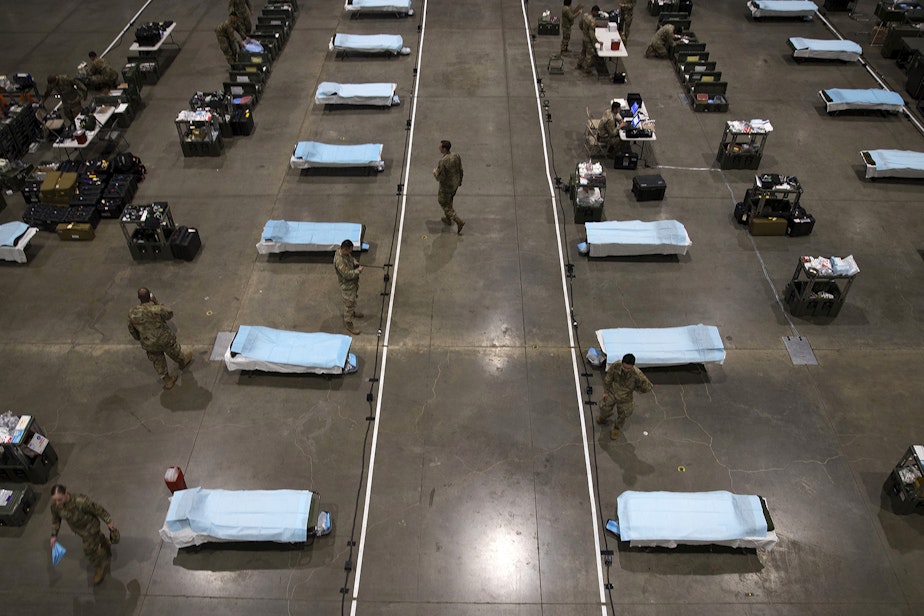You have a medical emergency that isn't related to coronavirus. Should you go to the hospital?

Although health care systems everywhere are preoccupied with responding to the coronavirus outbreak, everyday medical emergencies haven't stopped.
If you have a heart attack or stroke, or if you break a bone, there's no need to panic about a hospital's capacity or willingness to treat you, according to the Washington State Hospital Association.
"We are encouraging residents to take care of themselves in the same way they would if we weren’t facing Covid-19," spokesperson Tim Pfarr said by email.
"Depending on the severity of the injury, urgent care or ERs may be appropriate. If residents are unsure, they can call their local clinic for a telephone consultations, or call 911 if the injury may be life threatening."
Pfarr said that urban and rural emergency rooms across the state say they're separating patients exhibiting Covid-19 symptoms from those who aren't. Many are setting up outdoor tents as an extension of their emergency rooms to see patients with respiratory symptoms, he said.
In March, a military field hospital deployed to Seattle's CenturyLink Field Event Center for non Covid-19 patients in the event of a health care capacity surge.
But within three days of announcing the hospital was ready to receive patients, state officials said they would be returning the facility to the U.S. Department of Defense, citing an intention to help another state with a more imminent need.
Sponsored
Army field hospital for Covid-19 surge leaves Seattle after 9 days. It never saw a patient
So far, there's been no significant change in 911 calls the Seattle Fire Department responds to related to strokes, heart attacks, or major trauma since the start of the coronavirus outbreak, said spokesperson Kristin Tinsley. Additionally, the department hasn't changed its protocols regarding where to transport non Covid-19 patients.
However, the department has seen a roughly 25% decrease in the overall number of emergency patients it responds to daily since the disease took hold in the Seattle area. But Tinsley said people shouldn't hesitate to call first responders if they're having a health emergency.
"If someone is experiencing a medical emergency, we want them to call 911 right away and not delay," she said by email. "Additionally, when calling 911, we need the public to be open with dispatchers about if they have any symptoms of Covid-19: cough, fever, or difficulty breathing."
For individuals with serious medical concerns that aren't immediately life-threatening, things are less straightforward.
Sponsored
Gov. Jay Inslee last month issued a statewide moratorium on elective and non-urgent surgeries, in an effort to conserve hospital resources during the Covid-19 emergency. The order outlines exceptions for surgeries that, if postponed three months out, could further jeopardize a person's health.
Cancer patients have reported cancellations of tumor removal procedures, and have expressed concerns over whether their conditions might worsen as a result.
Elective surgeries, dental procedures to be postponed under new Washington state order
Pfarr, of the Washington State Hospital Association, said that decisions to suspend such surgeries are being made by clinicians on the ground.
"If someone is concerned that a delay in their treatment will negatively impact their long term health, they should discuss this with their provider to see if the procedure should move forward," he said.
Sponsored
He said the association is "cautiously optimistic" that these surgeries will be able to get underway again, as it becomes more clear that coronavirus mitigation strategies are working.
The University of Washington is working with patients on a case-by-case basis to determine if non-emergency surgeries could be halted without negatively impacting one's health, said spokesperson Susan Gregg.




